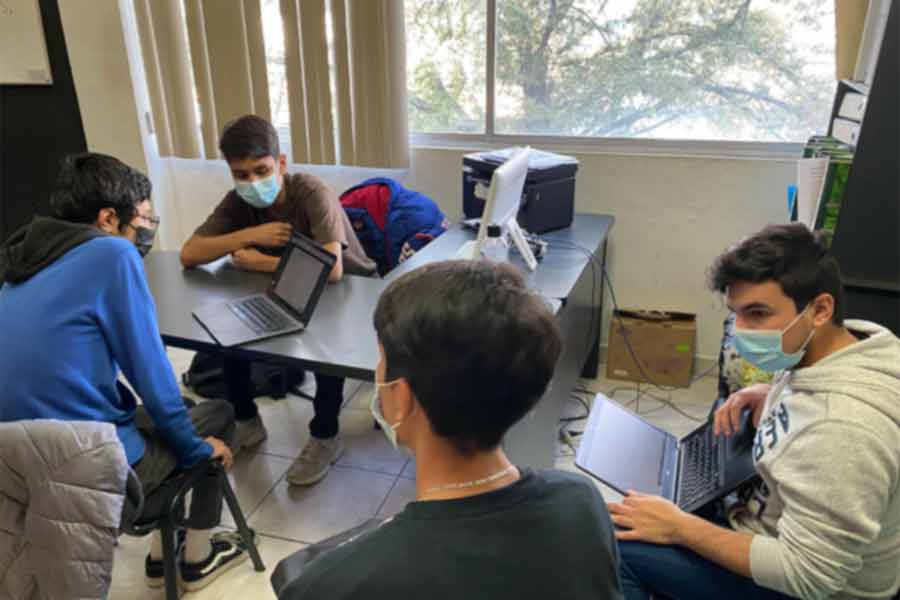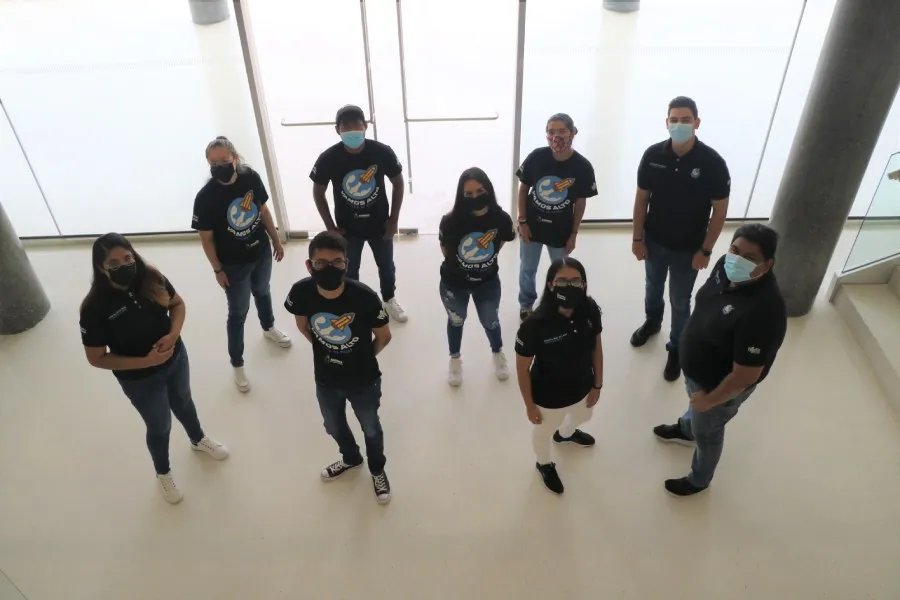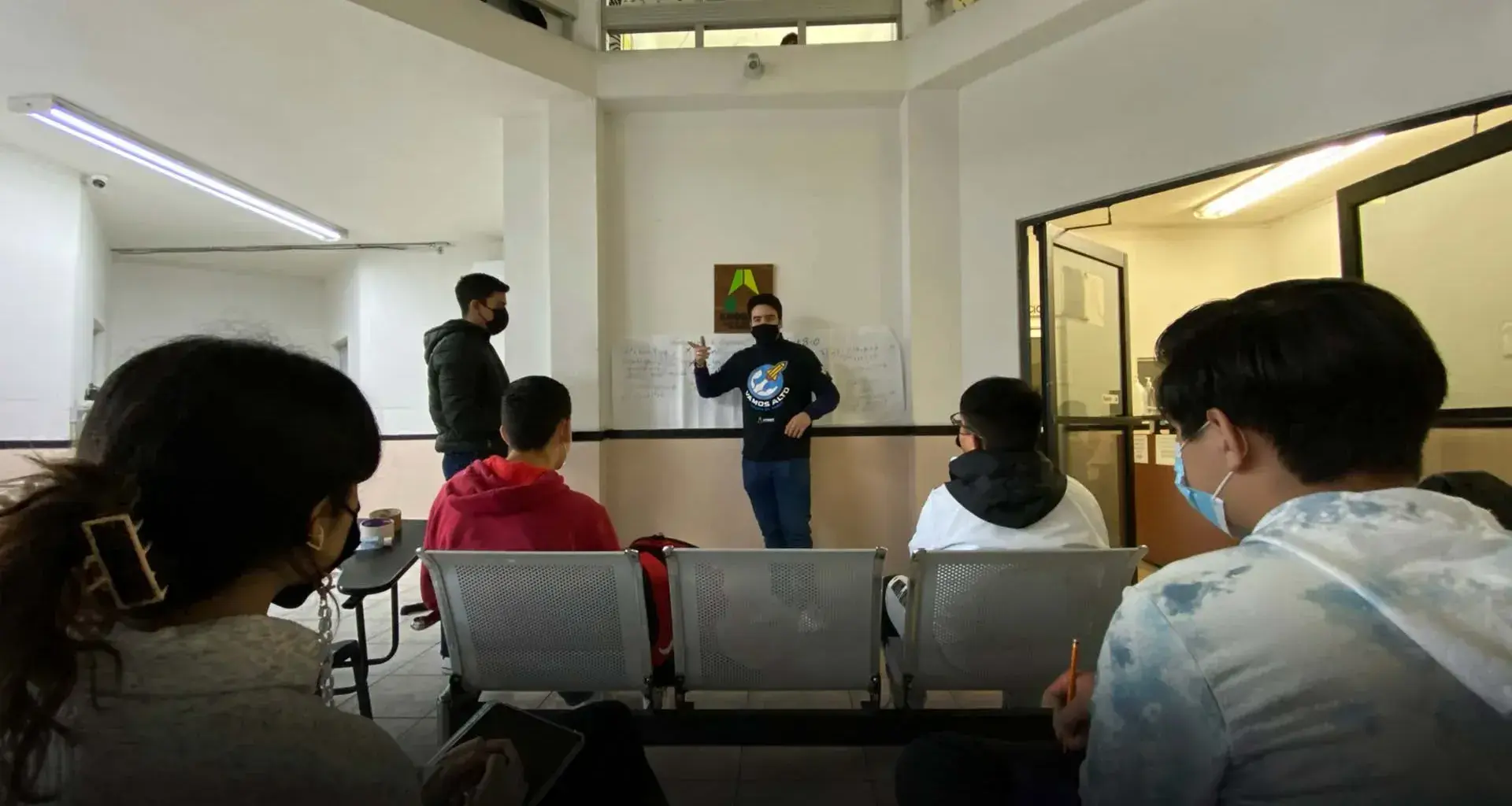Tec de Monterrey students have been recognized at the Universitas 21 consortium’s RISE (Real Impact on Society and Environment) awards for their project to tackle the education gap caused by the pandemic in middle schools and high schools.
The ADUX initiative, with its Vamos Alto (Let’s Aim High) project, received the award for the initiative with Most Impact, one of the competition’s categories. This is the second year students from the institution have won this award.
The core team is made up of three students from the Leaders of Tomorrow program, which consists of young people who have received full scholarships to study at the Tec due to their academic talent and social leadership. .
“It’s a youth-to-youth mentoring model,” said Eréndira Rodríguez, general coordinator of the initiative.
For its 400 current students, the project combines education with a personalized assistance program in which mentors and collaborators work together, explained Andrea Ortiz, Quality Management coordinator.
{"preview_thumbnail":"/sites/default/files/styles/video_embed_wysiwyg_preview/public/video_thumbnails/687029083.jpg?itok=c3h-cmYJ","video_url":"https://vimeo.com/687029083","settings":{"responsive":1,"width":"854","height":"480","autoplay":0},"settings_summary":["Embedded Video (Adaptable)."]}
The aim of Vamos Alto: closing the education gap.
The initiative, with cognitive and socio-emotional approaches, is a hybrid program for students from the third year of middle school to the sixth semester of high school.
Tutoring is given in English, Chemistry, Physics, and Biology, and support is provided through emotional intelligence workshops, training sessions, and motivation and organization strategies.
The team explained that there are designated hours from Monday to Friday to provide tutoring and guidance to students. On Saturdays, from 9 a.m. to 12 p.m., they attend specific activities related to what they’ve seen in class during the week.
The core team is made up of three Leaders of Tomorrow students:
- Eréndira Rodríguez,
- Andrea Mercedes Ortiz, and
- Pedro Pablo Ortiz.
Assisting the team is Luis Ángel Cárdenas, who is part of the Zaber Foundation, an initiative providing full scholarships for higher education at the institution.
“In addition to the project providing academic assistance, we also seek to provide personal assistance,” Ortiz explained.

“Our goal is to make a connection between the private, public, and social sectors,” added the general coordinator.
The initiative, whose planning began in July 2021, was implemented in the municipality of Apodaca, Nuevo León, in October of that same year.
The municipal mayor’s office provides operational support with transportation for Tec students from outside the area who make up part of the group of volunteers and with facilities for in-person classes.
Support model and digital platforms for learning
The project’s basic program is divided into two groups: mentors and collaborators. The team members explain that each person carries out specific actions for student development.
Collaborators are in charge of conducting field studies to generate strategies for strengthening student-mentor relationships, Ortiz explained.
“They support us a great deal in helping us with this personal side that isn’t seen in educational institutions because we generally only see the academic side,” added the Quality Management coordinator.
For their part, mentors are responsible for teaching the designated subject, checking student attendance, and assigning tasks, explained Luis Ángel Cárdenas, Talent coordinator.
“We try to ensure that the contents match, and we create the content per grade level.”
“We check specific profiles for proactivity, a helpful attitude, and that our mentors have full scholarships at the Tec,” added the general coordinator.
As part of the learning strategies, they match up the curriculum from the Ministry of Public Education with content on platforms such as Khan Academy and Curso de Inglés (English Course).
“We try to ensure that the contents match, and we create the content per grade level,” explained Pedro Ortiz, academic coordinator.
In order to apply what students have learned in the area of science, they do experiments, activities on Kahoot!, and rallies, added the Talent coordinator. English content is based on the Cambridge program and covers a basic level of the language.
“During the week, students work independently on these digital platforms, according to the topics seen and the tasks assigned,” said Cárdenas.

RISE award for social projects
RISE is an international competition from Universitas 21 that is designed to accelerate the scale and impact of student-led projects with the aim of connecting them with experts from academia and industry.
The university has to nominate a project in order for it to take part in the competition. A maximum of four projects are chosen, explained Rodríguez.
What’s more, the team explained that the prize includes promotion for the social initiative through the resources of companies or academics.
“They provide you this support within their network of universities and you, as a project, are responsible for maintaining the connection,” explained the general coordinator of the project.
The prize includes a 2,000-dollar cash incentive, which will be used to develop a digital platform for Vamos Alto.
“We want to develop a free-access, intuitive platform where we can store all the content,” concluded Rodríguez.
U21 is a global network of 28 leading universities from 18 countries in the Americas, Europe, Asia, Oceania, and Africa that feature intensive research, educational innovation, and student mobility.
KEEP READING:





